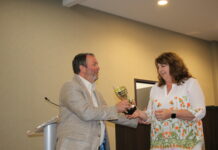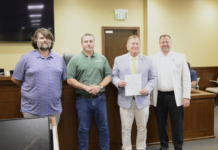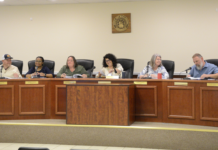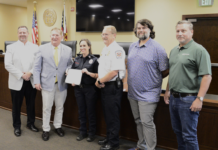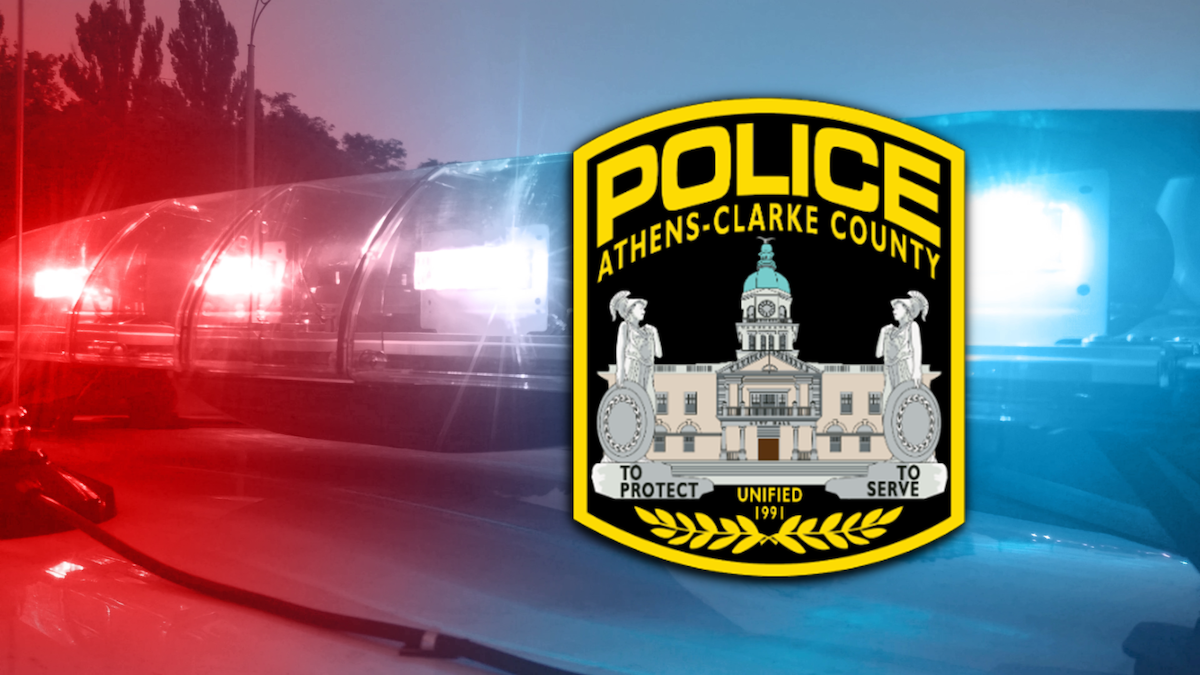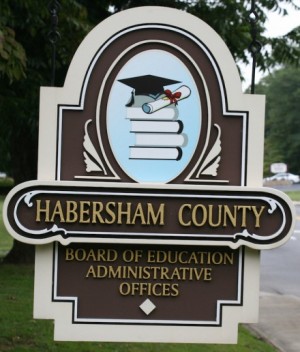
Tuesday night’s Habersham County Board of Education (BOE) work session was highlighted by the superintendent’s glowing report on the first day of school, but that wasn’t the only news to come out of the meeting. There was a surprising announcement by one of the board members and an unsettling presentation by a faith-based community organization.
Elger tests positive for COVID-19

District Five Habersham BOE member, John Elger, announced during the September 8 work session that he was positive for COVID-19.
Elger is asymptomatic and says that he quarantined for two weeks before Tuesday’s meeting, which he attended in-person. According to the CDC, asymptomatic individuals who have tested positive for COVID-19 are safe to be around others 10 days after their positive test result.
Elger has been an outspoken critic of Habersham Schools’ reopening plan and mask policy, abruptly leaving the July 20 meeting, which he later apologized for at the Aug. 10 meeting.
“I suspect I was among the most devoted mask-wearers that you all [the board] are around, and it didn’t prevent me from getting it,” Elger said Tuesday night. “Of course, wearing this mask doesn’t help me. It helps me not make your life more difficult.”
Some questioned Elger’s decision to attend Tuesday’s meeting in person, expressing concerns over possible exposure.
HUB presentation disturbed some viewers
Also in response to Tuesday’s meeting, some observers behind the scenes voiced their discomfort over a presentation that revealed the identity of a student who is a sex abuse survivor.

Habersham United Believers (HUB) Director Blake Foster introduced the boy and his mother. They stood alongside him as he talked about how HUB’s programs have helped the minor overcome social difficulties. Foster pointed out to the board, in-person audience, and livestream viewers that “he [the minior] has allowed me to do this.”
“He’s been through some horrific things, but we can all be proud [of him],” Foster said.
HUB’s Teach One to Lead One (T1L1) program serves at-risk youth in Habersham schools. The group’s faith-based FOCUS club meets after school.
The boy, whose name we have chosen not to release because of his age and the fact he’s a sex abuse survivor, was one of several examples HUB representatives used to demonstrate the harsh realities many young people in Habersham face.
Dr. Bob Wiley, a T1L1 mentor, spoke of children who feel helpless in their current circumstances. He recounted the story of one girl who asked him and his wife, “How would a girl believe in a God that would allow her to be raped at 4 years of age and then again at 14 years of age?” Wiley also shared the story of a 12-year-old girl who tried to kill herself by lying down in the road, waiting to be run over.
“These are just a few of the disturbing situations that my wife and I have recently encountered that underscore the need for teaching and instilling life-changing principles into the lives of these precious young people,” the retired surgeon said.
While HUB is a Christian-based organization, Foster says it steers clear of religious teachings in the classroom. Religious instruction is, however, offered in FOCUS since it takes place outside of school.
Wiley cited a long list of factors, situations, and challenges confronting today’s youth that he says “interfere with the development of strong character traits in their lives.” That list includes peer pressure, social media, lack of Biblical training at home, not being brought up in church, lack of supervision, boredom, drug usage, addiction and trafficking, use of and or the availability of alcohol in the home, pornography, teenage sex, pregnancy, homelessness, poverty and unemployment of parents. Wiley also cited physical, emotional, and sexual abuse, learning disabilities, infidelity and divorce of parents, single parenting, and abandonment of children. He says being reared by grandparents, uncles, and aunts can create challenges for students but acknowledged that it is the best-case scenario in many situations. Other youth risk factors include being reared in foster homes, health problems of students and parents, fear of COVID-19, racial tension in our society, and our country’s political polarization.
“We have a collective challenge and responsibilty to help,” he said, “especially our youth at risk here in Habersham County.”
HUB wants to expand the T1L1 program and FOCUS club to all 14 Habersham schools.
This article has been updated


